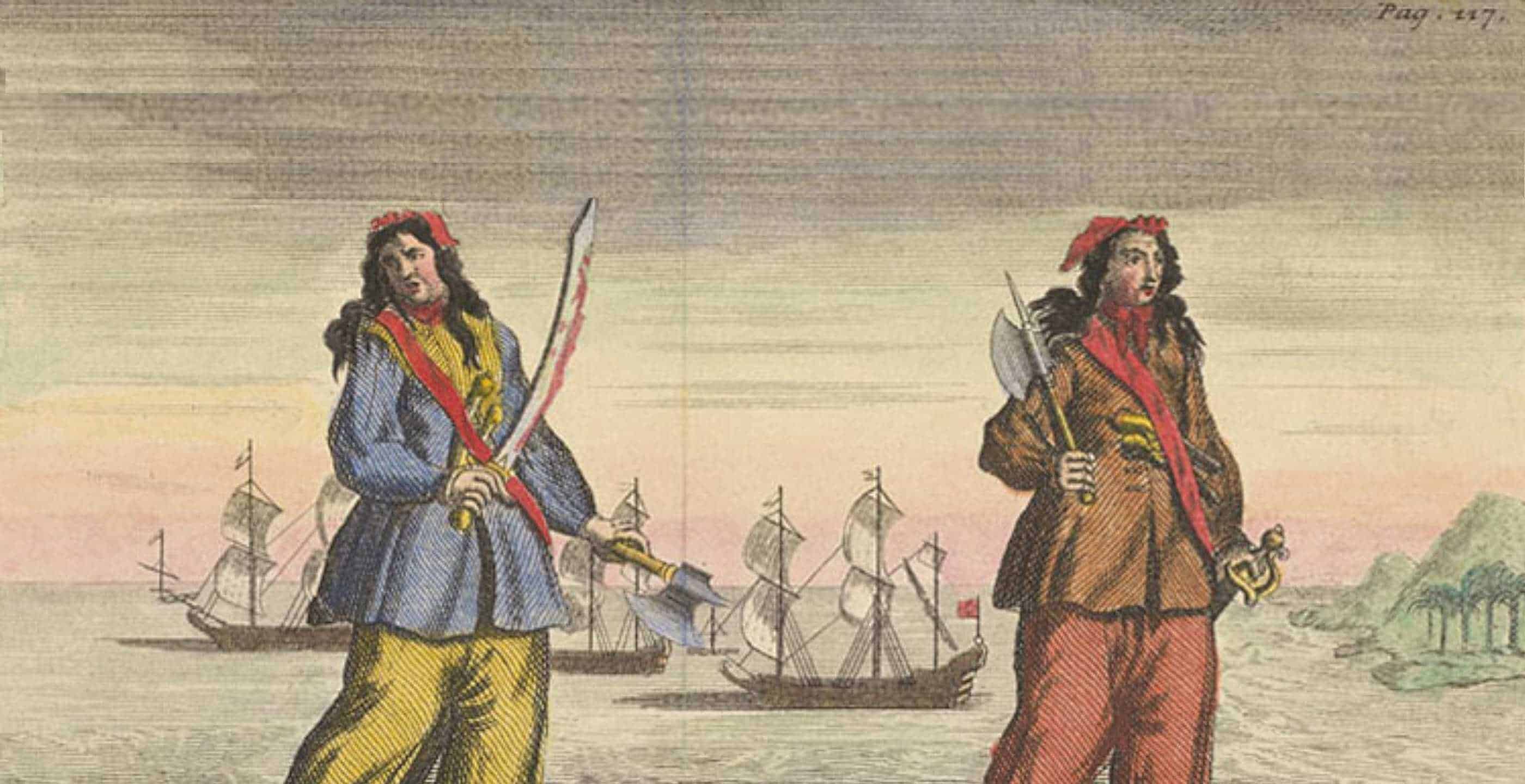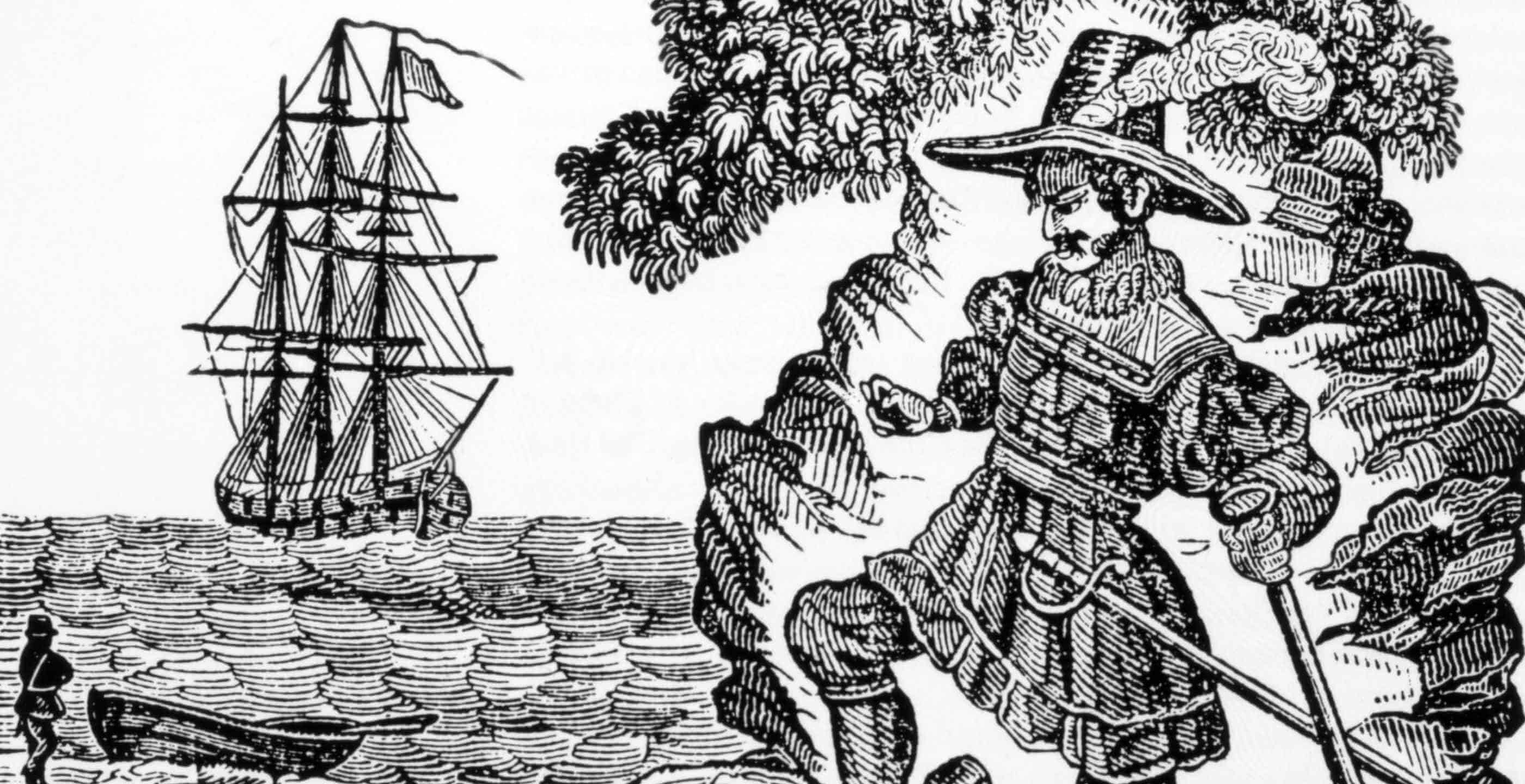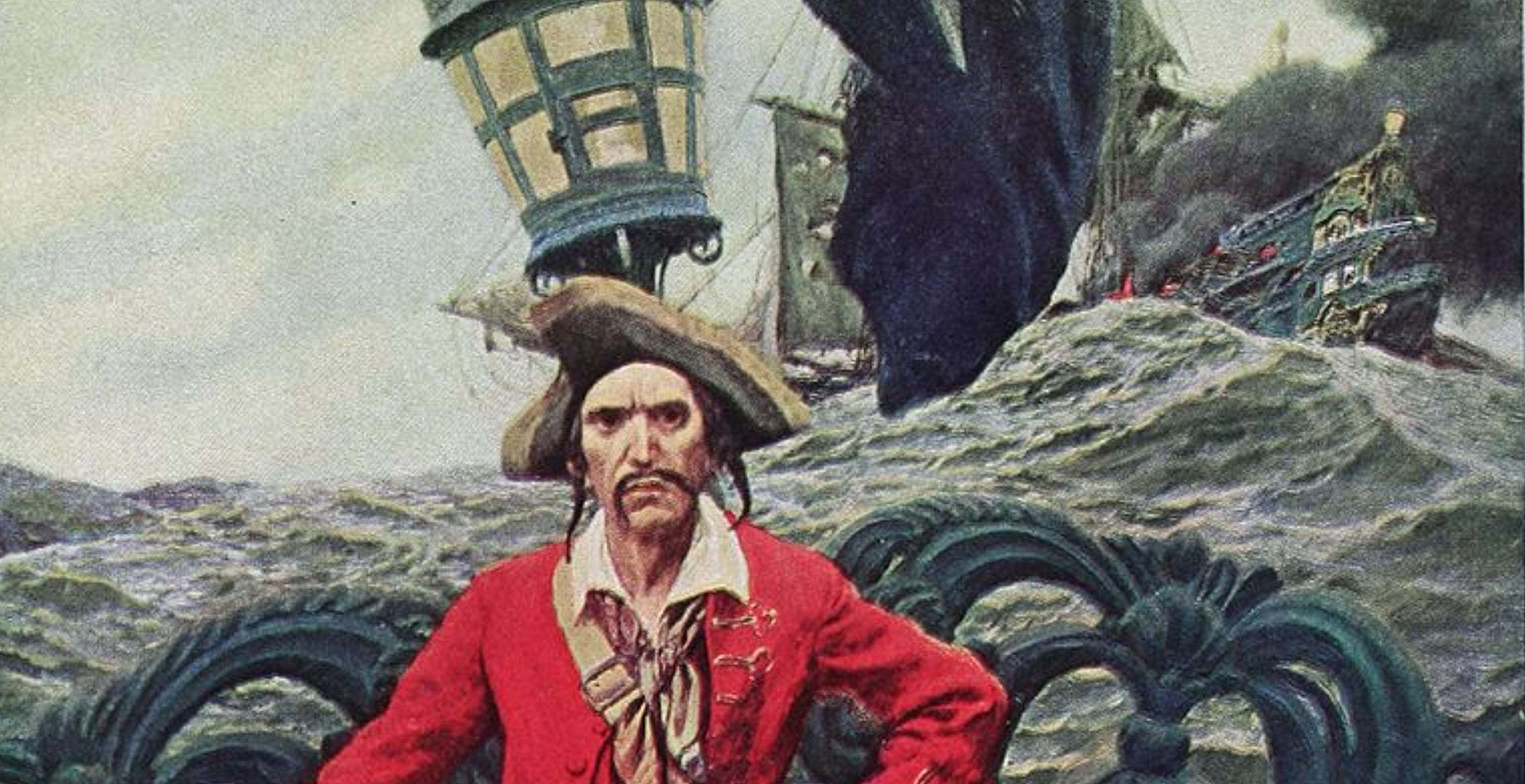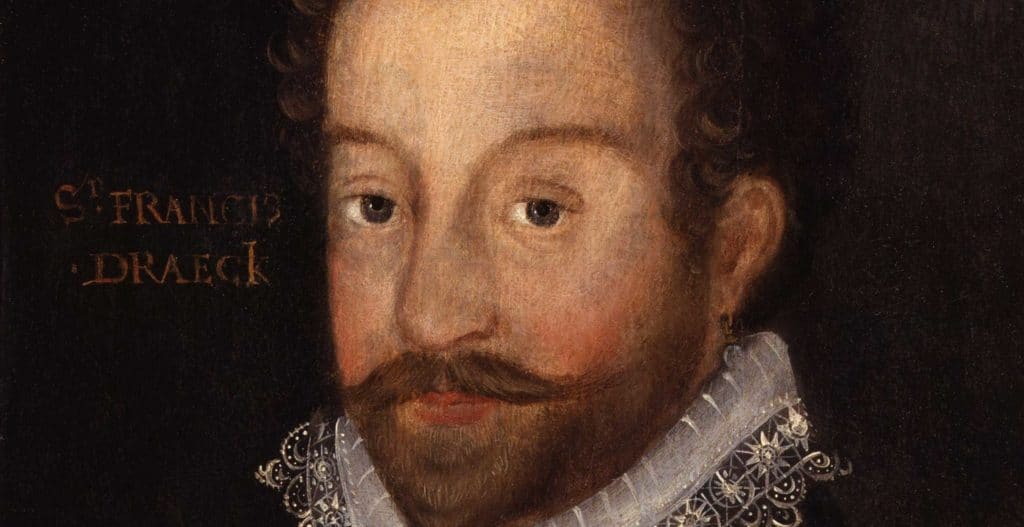During the ‘Golden Age’ of piracy, Welshman Bartholomew Roberts plundered more than four hundred ships (known as ‘prizes’), making him the most successful pirate of the era. Posthumously known as ‘Black Bart’, Roberts pillaged without discretion, unconcerned by the nationality of his prey, targeting vessels of the transatlantic slave route, with intimidation achieved by his flagship Royal Fortune, crewed with two hundred men and forty cannon.
Though armed like a warship, Roberts’ most infamous assault was more about cunning than violence and menace. Royal Fortune happened upon a Portuguese treasure fleet, off the coast of Brazil, awaiting the protection of Men-of-War to escort the convoy to Lisbon, such were the established dangers for the transport of riches across the Atlantic. Though examples of Roberts’ brutality are plentiful, his most renowned larceny was brazenly conducted at low volume – at least to begin with – masquerading as part of the convoy, discovering the ship containing the most loot, then ordering the attack and subsequent boarding of said vessel before the Portuguese realized the audacity of what was already too late to prevent. Estimates of the seizure range from 40,000 to 90,000 gold coins, along with elaborate jewellery intended for the King of Portugal.
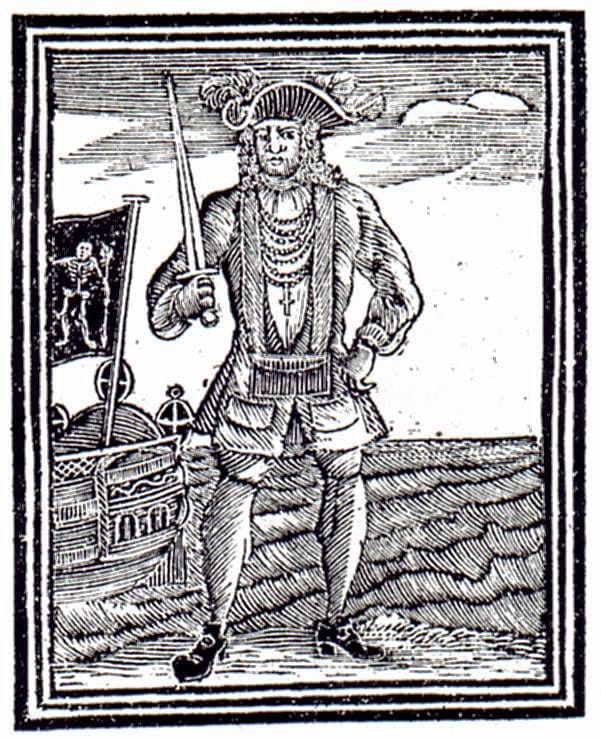
The peak of Roberts’ brief career – 1718-1722 – was a lucrative time for raiding the shipping lanes between Europe and the Americas, with pirates operating from land enclaves, free ports, or as yet discovered coastlines. Roberts could boast the highest number of captured vessels but the success of his contemporaries would also culminate in British anxiety, with colonial trade and the exploitation of slavery being affected by the seizure of wealth by pirates of several nations. Roberts, however, should be remembered for more than his piracy, as the Welsh buccaneer issued a code of conduct and the first form of pirate medical welfare. As a result, Royal Fortune and other vessels of Roberts’ small fleet would represent an incomparable egalitarianism at sea.
The stipulations of Roberts’ code included that, ‘Every man has a vote in affairs of moment and equal title to seized fresh provisions and strong liquors’. Democracy and equality of supplies were just two reasons for young men being seduced by piracy rather than life on merchant or navy ships. The code of conduct did, however, have strict measures to ensure that the crew were prepared for efficient looting and plundering. Roberts sought an ironic professional form of piracy, exemplified by the code’s insistence on, ‘pistols being kept clean and fit for service’, and to assist a good night’s sleep, ‘lights and candles to be put out by eight o’clock’. The code is a curious mix of the paradoxically circumspect (all disputes to be ‘ended on shore’, ‘no game at cards of dice for money’), the uncompromising and grave (theft was punishable by ‘slitting the ears and nose of the guilty’, followed by ‘setting him on shore where he is sure to encounter hardships), and a surprising concern for musicians to be granted a weekly day of rest (‘but the other six days, none with special favour’). More predictably, drinking was permitted, even after lights out, though this must be on ‘open deck’. Roberts, though, remained teetotal, adding to the contradictions that do not correlate with perceptions of piracy.

Born in Pembrokeshire, Roberts is said to have been reluctant to become a pirate, but soon came to see the advantages of the lifestyle. Whilst the crime of piracy carried the death sentence, the life of a sea-rover, encountering exotic lands, with opportunities for unimaginable wealth, lured many to engage in a life of high risk and high reward as nascent capitalism, slavery, poverty and colonialism became entrenched. The undoubted dangers – the expected bloodshed when boarding ships, the fear of being broadsided by a 70-cannon-Man-of-War – would cause many to reconsider the prospect. So too the sight of men who had returned to land, suspected of piracy, with missing limbs, no subsequent compensation and therefore destitute.
Roberts, though, added a further item to his code of conduct that would make life on Royal Fortune to be one of the most appealing at sea:
“No man to talk of breaking up their way of living, till each has shared one thousand pounds. If in order to this, any man should lose a limb, or became a cripple, he is to have eight hundred out of the public stock, and for less hurts, proportionately”.
Long before private medical insurance, Roberts instigated pirate medical insurance, meaning his crew were compensated for injuries received in combat. The articles were recorded by British Captain Charles Johnson (its suggested he was actually Daniel Defoe), in his 1724 book ‘A General History of the Robberies of the most notorious Pyrates’, which shows the loss of a right arm would be compensated by eight-hundred pounds, whilst the severing of a left arm would result in the lesser payment of seven-hundred pounds (compensation was often paid in pieces of eight, as stolen from Spanish galleons). More curious is the indemnity for the loss of an eye, which was deemed the equivalent of a finger (one hundred pounds). Though it is never specified as to whether an index finger or thumb was deemed worthy of higher recompense than their counterparts, we can presume that appendages were afforded equal compensation. Whilst there is no record of this, one cannot help but speculate as to whether some pirates cleaved a fifth digit to exploit this apparent anomaly, presenting their relatively small wound as a consequence of recent battle, thus recovering most of their thousand-pound premium.
Malaria, typhus, dysentery and other maladies, remained a threat to the life of all seamen that no form of medical insurance could assuage. Royal Fortune did, though, have the edge once again, specifically over British merchant ships who did not have such medical welfare regulations, nor sea surgeons. Whilst the British Royal Navy had employed sea surgeons since the 16th century, and made them more commonplace in the two centuries to follow, pirates had great difficulty in persuading surgeons to be part of their illicit enterprises. In some cases, surgeons were stolen just like the treasures pirates would target. Roberts would also be distinct in this regard too though, as two surgeons were willingly employed by Royal Fortune, namely George Wilson and Peter Scudamore, thus adding to the features of being aboard a Roberts’ ship, a favourable, though sanguinary perk when compared to most British merchant ships, which sailed without sea surgeons throughout the eighteenth-century.
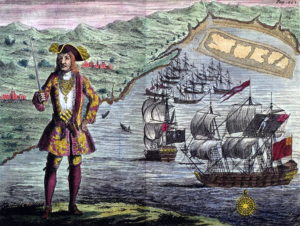
With such appeal came a growing fleet, inflated numbers of crew and the ambition of more ‘prizes’, including those of His Majesty’s Navy. Since the 15th century, England had no sincere objections to piracy (exemplified by Elizabeth I’s sponsoring of Sir Francis Drake), knowing that high value robbery of Spanish and Portuguese ships would, in effect, clip the sails of the world’s super powers, retarding their dominance in the western hemisphere.
Roberts’ catalogue of successful captures forged a feeling of invincibility, but in the early 1720s urgent questions were being raised in the Houses of Parliament in London. Britain was dependent on its trading routes, specifically the slaving triangle between West Africa, the Caribbean and Europe, meaning Roberts and other pirates had to be overcome. The strategy of decelerating Spanish and Portuguese hegemony by way of unchecked piracy was no longer compatible in light of British expansion. The more Roberts disturbed British trade, the more the Royal Navy were determined to track him. And so, in 1722, Royal Fortune was challenged by His Majesty’s Swallow, off the coast of Benin, West Africa. Due to his reputation as the most prolific pirate of the era, along with the favourable conditions stated in the code of conduct and the provision of medical insurance, Roberts’ force numbered four ships and several hundred men. His Majesty’s guns were, however, superior, and Roberts fatal wound to the throat led to the fight being conceded. Roberts’ motto, “A merry life and a short one”, was often quoted, seeming apt. His death was seen by many as the end of the Golden Age, so too the hanging of fifty-two of his crew, a statement that echoed throughout the trading triangle.
Mark Callaghan is an Art Historian and Resident Historian for Viking Cruises. He specializes in the memorialization of conflict and trauma. His monograph ‘Empathetic Memorials’ is published by Palgrave Macmillan, later this year. Mark also presents on many subjects, including the Atlantic slave trade and the Age of Discovery.




